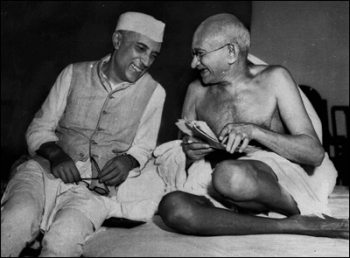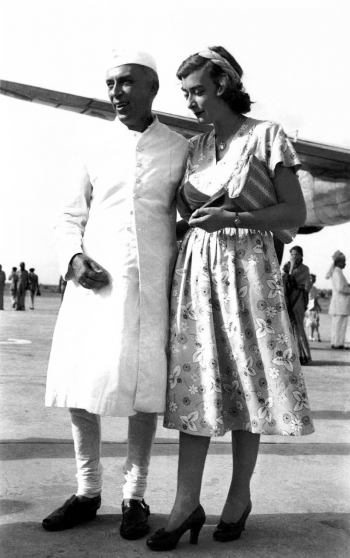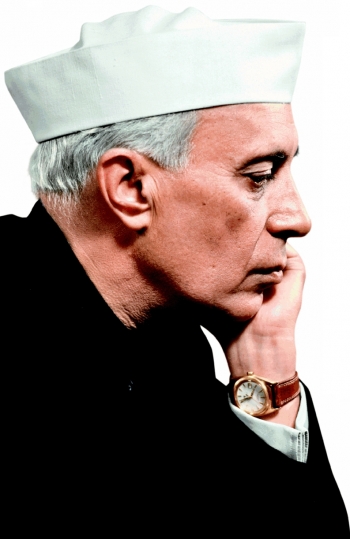The Buddha emphasized many times that the doctrine he preached was understandable only by the wise. He also said that one who sees the dhamma can see the Buddha and vice versa. The statement is very true to this day. Intellectuals all over the world are embracing the ideas of the Buddha and implementing them in their lives. More significant is that many of the great leaders of our time too extracted important ideals from the Buddha’s personality and his teachings for their personal intellectual fulfillment, emotional solace and also for leading humanity.
For those of us born into traditional Buddhist families and hearing Buddhist messages from early childhood, some of the utterances of the Buddha may sound clichéd. We are so close to this tradition and following some shallow ritualistic practices so mechanically that we fail to understand the true significance of the noble teachings of the Buddha. Therefore, it is very important for us to look at our tradition through the eyes of these great intellectuals. We need to see how they elevated their lives through Buddhism and Buddhism through their eyes; to see the ideas or features of Buddhism that attracted them and whether we really follow the same features.
The great personality whose statements I quote today is Jawaharlal Nehru – the first prime minister of India. Jawaharlal Nehru was given the honorific title ‘Pandit’ meaning a wise man, by his contemporary people. This fact itself is a reminder of the Buddha’s saying that the wise only could understand his words. Pandit Jawaharlal Nehru’s contributions (political or otherwise) to humanity in general and India in particular, can be gauged from other internet sources, his own writings, and volumes of publications on him. Here, my purpose is to draw into the attention of general readers, some of his thoughtful expressions and remarks in appreciation of the Buddha, Buddha’s teachings, and Buddhist tradition and followers. The expressions appeared in several of his publications. These statements are understandable by themselves (without any commentaries), even if one may not be aware of the contexts wherein they appear in his books. One is recommended to read these publications written in wonderful prose containing illuminating wisdom of one of the greatest personalities of the world.
On the Personality of the Buddha
The life of the Buddha itself has many attractive elements. A huge bulk of literature grew around his life fascinating the poets of high aesthetic sensibility, most rational of intellectuals or philosophers, and the general people alike. In the words of Pandit Nehru:
“The Buddha story attracted me even in early boyhood, and I was drawn to the young Siddhartha who, after many inner struggles and pain and torment, was to develop into the Buddha. Edwin Arnold's 'Light of Asia' became one of my favourite books. In later years, when I travelled about a great deal in my province, I liked to visit the many places connected with the Buddha legend, sometimes making a detour for the purpose. Most of these places lie in my province or not far from it. Here (on the Nepal frontier) Buddha was born, here he wandered, here (at Gaya in Bihar) he sat under the Bodhi tree and gained enlightenment, here he preached his first sermon, here he died”. [The Discovery of India, p. 130]
Yet it is not the story, but the character that, in spite elegant linguistic embellishments and fanciful imaginary descriptions of poets, stands as a human being who by strenuous exertion overcame all the mental negativities and developed supreme purity and wisdom. It is no wonder, therefore, that the personality of the Buddha would attract Pandit Nehru. In his autobiography he writes:
“Buddha has always had a great appeal for me. It is difficult for me to analyze this appeal, but it is not a religious appeal, and I am not interested in the dogmas that have grown up round Buddhism. It is the personality that has drawn me. So also the personality of Christ has attracted me greatly”.
This statement on the Buddha contains the impressions of most great thinkers of his generation educated in modern education system.
On Buddha’s Contributions
The Buddha was a revolutionary in social matters as well as in philosophical/spiritual traditions of his time. With strong reasoning and alternative ideals of love, sympathy, cooperation, etc. he combated social discriminations, injustices, and various inequalities. After twenty five centuries, when Pandit Nehru was very much involved in the India’s freedom struggle, witnessing discriminations and injustices of the ruling elite, certainly the contributions of the Buddha would provide him great inspirations. Pandit Nehru precisely appreciates the great contribution of the Buddha as follows:
“Buddha had the courage to attack popular religion, superstition, ceremonial, and priestcraft, and all the vested interests that clung to them. He condemned also the metaphysical and theological outlook, miracles, revelations, and dealings with the super-natural. His appeal was to logic, reason, and experience; his emphasis was on ethics, and his method was one of psychological analysis, a psychology without a soul. His whole approach comes like the breath of the fresh wind from the mountains after the stale air of metaphysical speculation.”
The ideas of Buddha against caste system – the system that fixed a person’s social position as high or low by birth – were the foremost democratic utterances in human history. They had far-reaching impact in centuries following the demise of the Buddha. The marginalized now had opportunities to participate in religious and philosophical discussion attaining high spiritual positions and winning reverence from those who claimed to be superior caste. In business and political progress the caste discrimination was a curse to the society. Therefore, in order for a society to progress in every aspect priority must be given to intellect. Pandit Nehru has related these views in the total framework of Indian history:
“Buddha did not attack caste directly, yet in his own order he did not recognize it, and there is no doubt that his whole attitude and activity weakened the caste system. Probably caste was very fluid in his day and for some centuries later. It is obvious that a caste-ridden community could not indulge in foreign trade or other foreign adventures, and yet for fifteen hundred years or more after Buddha, trade was developing between India and neighboring countries, and Indian colonies flourished. Foreign elements continued to stream into India from the north-west and were absorbed.” [The Discovery of India, p. 120]
On the Unity of Religious and Philosophical Traditions
One of the outstanding features of nineteenth and twentieth century India was that, most of the great personalities – poets, politicians, social reformers, religious masters, and philosophers – advocated tolerance of other religious views. They were enthusiastic about the views that others had to offer and happily accepted those views that appealed to them and applied them in their activities in a congruent manner to build a harmonious society resulting in the renaissance of India giving birth to new religious thoughts and traditions. The following excerpt shows how Jawaharlal Nehru viewed these traditions of East and West.
“Some words of the Buddha or of Christ would shine out with deep meaning and seem to me applicable as much to-day as when they were uttered 2,000 or more years ago. There was a compelling reality about them, a permanence which time and space could not touch. So I felt sometimes when I read about Socrates or the Chinese philosophers, and also when I read the Upanishads and the Bhagavad Gita. I was not interested in the metaphysics, or the description of ritual, or the many other things which apparently had no relation to the problems that faced me. Perhaps I did not understand the inner significance of much that I read, and sometimes, indeed, a second reading threw more light. [The Discovery of India, p. 77-78]
On Buddhist Heritage
Inspired by Buddha’s thoughts and seeing how practical they are in forming one’s life one feels so fortunate visiting the places related to the Buddha. After converting to Buddhism, Emperor A?oka visited these places and took measures to preserve those memorable spots that are eternal reminders of exertion for truth, enlightenment, and the manifestation of perfection of wisdom. The joy of being in such place would be certainly overwhelming for a penetrative thinker like Pandit Nehru.
“At Sarnath, near Benares, I would almost see the Buddha preaching his first sermon, and some of his recorded words would come like a distant echo to me through two thousand five hundred years. Ashoka's pillars of stone with their inscriptions would speak to me in their magni-ficent language and tell me of a man who, though an emperor, was greater than any king or emperor.” [The Discovery of India, p. 52.]
Visiting ancient Buddhist ruins of Sri Lanka Pandit Nehru penetrated deeper into the Buddha’s qualities and this visit shed new lights in his impressions of the Buddha.
“We visited many of the famous sights and historical ruins of the island, and Buddhist monasteries, and the rich tropical forests. At Anuradhapura I liked greatly an old seated statue of the Buddha. A year later, when I was in Dehra Dun Jail, a friend in Ceylon sent me a picture of this statue, and I kept it on my little table in my cell. It became a precious companion for me, and the strong, calm features of Buddha's statue soothed me and gave me strength and helped me to overcome many a period of depression.”
On Buddhist monks
In the same context as above he mentions about his impressions of Buddhist monks as follows:
“I saw many Buddhist bhikkhus (monks) in their monasteries and on the highways, meeting with respect wherever they went. The dominant expression of almost all of them was one of peace and calm, a strange detachment from the cares of the world. They did not have intellectual faces, as a rule, and there was no trace of the fierce conflicts of the mind on their countenances. Life seemed to be for them a smooth flowing river moving slowly to the great ocean. I looked at them with some envy, with just a faint yearning for a haven; but I knew well enough that my lot was a different one, cast in storms and tempests. There was to be no haven for me, for the tempests within me were as stormy as those outside. And if perchance I found myself in a safe harbor, protected from the fury of the winds, would I be contented or happy there?” [Toward freedom, Autobiography, p.198 -99]
Conclusion

















